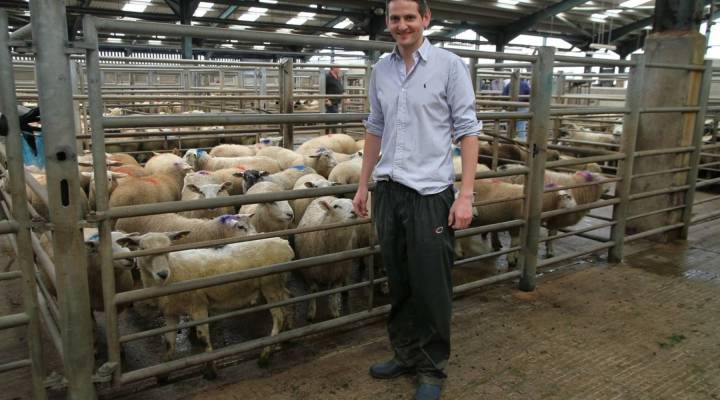
What it’s like to live near Brexit’s greatest issue
What it’s like to live near Brexit’s greatest issue

My Economy tells the story of the new economic normal through the eyes of people trying to make it, because we know the only numbers that really matter are the ones in your economy.
The openness of the border between Ireland and Northern Ireland has been a sticking point in Brexit negotiations. It’s the only land border between Britain and a European Union member state, as Northern Ireland is a British territory. And while Bloomberg reports that the border issue may soon be resolved, there is still plenty of uncertainty for people living near the border.
For the latest installment in the series, we hear from James Johnston, director of the Ulster Farmers Mart in Enniskillen, Northern Ireland, who describes what it’s like to live near the Irish border as Brexit negotiations have marched on.
My name is James Johnston, and I work for Ulster Farmers Mart, which is a family business, in the town of Enniskillen. We run a livestock sales business, mainly cattle and sheep. We’re right on the border, so there’s certainly a lot of confusion, a lot of uncertainty around Brexit.
It’s very different to what’s been portrayed in the media. There’s free movement across the border. And I think just the general consensus, whether somebody’s voted to leave or voted to remain, they’re all united in terms of just keeping up that freedom of movement.
We deal with farmers who are customers and they have land on both sides of the border. So in one field, they’ve got cattle and sheep that are registered to a Northern Ireland farm. Literally the other side of the fence, they’ve got cattle and sheep that are registered to a Republic of Ireland farm, and it’s of paramount importance that those farmers can go about their daily business. They would be crossing the border several times a day.
Personally, I was for Brexit. I just feel that the European Union, as it currently is, has just taken more and more authority and more and more power, and I think to have your own autonomy and your own freedom outside of those constraints would be a positive thing in the longer term. But also we would have other farmers, quite a number of sheep farmers, who very much feel that it’s beneficial to stay within Europe and to be part of the same regulations on the same rules because it makes trade easier.
Speaking to people more at grassroots level, the consensus is that there will be some sort of deal, that it won’t be left to a no deal. Reasonable minds will get together and get something put in place, but certainly it’s very much in people’s minds, and just the uncertainty on the whole question of what’s going to happen, especially with the border, it’s something that people are thinking about constantly and very much concerned by.
How’s your personal economy doing? Do you have a story to share? Let us know! This series only works with help from people like you.
There’s a lot happening in the world. Through it all, Marketplace is here for you.
You rely on Marketplace to break down the world’s events and tell you how it affects you in a fact-based, approachable way. We rely on your financial support to keep making that possible.
Your donation today powers the independent journalism that you rely on. For just $5/month, you can help sustain Marketplace so we can keep reporting on the things that matter to you.












